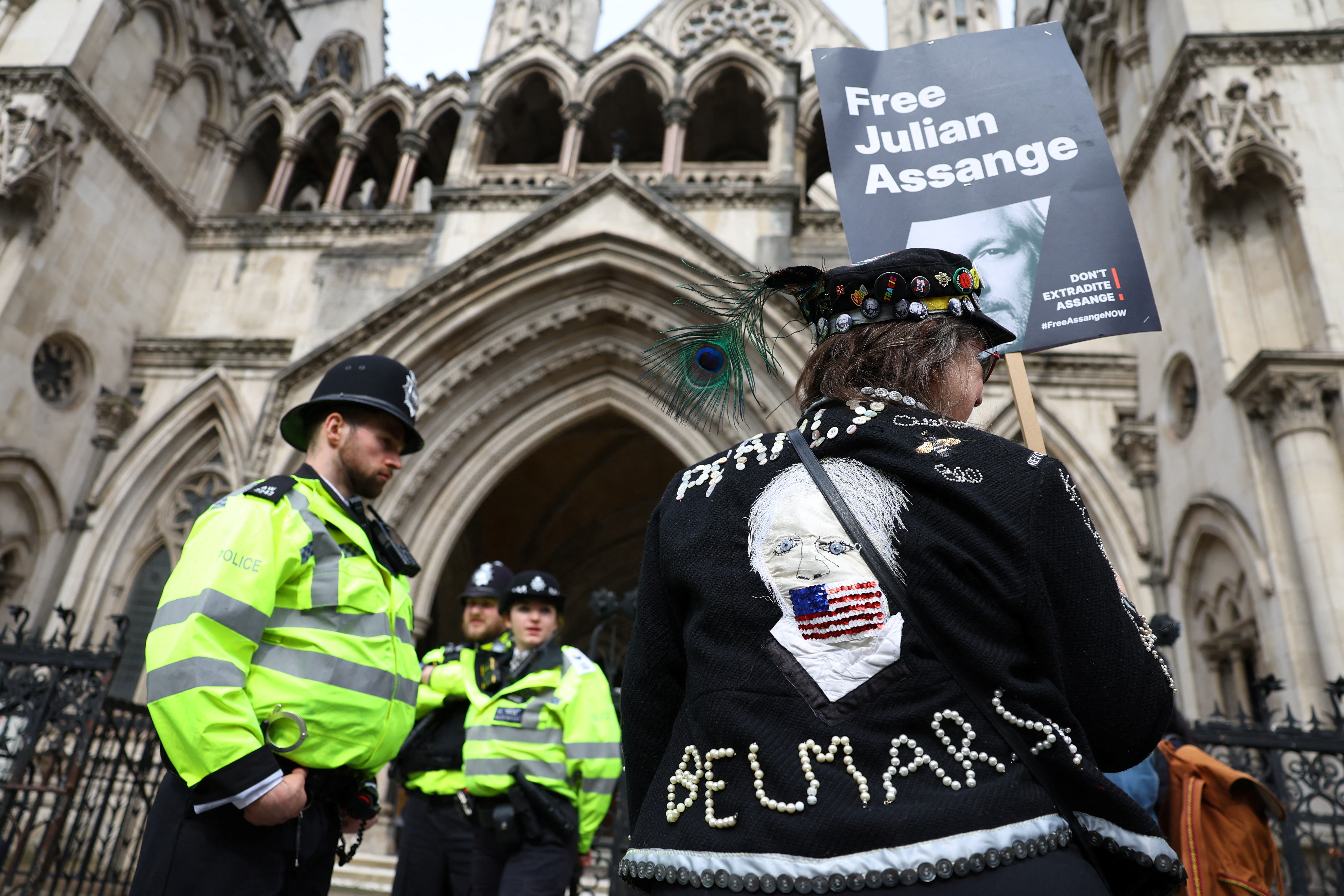
Free speech advocates and experts have criticised a British court judgement for failing to stop WikiLeaks founder Julian Assange’s extradition to the United States.
Assange was ordered extradited from the United Kingdom in 2022 to face espionage charges in a court in Virginia in the US, and he has appealed that extradition.
London’s High Court ruled on Tuesday that it would seek assurances from the Eastern District of Virginia court that Assange would not be subject to the death penalty.
In addition, the UK court sought a written commitment that Assange would be accorded the same rights as a US citizen under the US Constitution’s First Amendment, which protects free speech and freedom of the press.
“Those [assurances] appear at face value to not be contentious and I cannot foresee the US refusing to give such assurances,” Donald Rothwell, professor of international law at Australian National University, told Al Jazeera.
In the UK High Court’s decision, Justice Jeremy Johnson wrote “If assurances are not given then we will grant [Assange] leave to appeal without a further hearing … If assurances are given, then we will give the parties an opportunity to make further submissions before we make a final decision on the application for leave to appeal.”
Rothwell said, “Assange now basically joins a queue of others seeking to have their appeals heard and determined. It is doubtful whether these processes would be completed within six months, or possibly by the end of 2024.”
That angers Assange’s friends and advocates, who say that merely fighting extradition, first from the Ecuadorean embassy in London for seven years, then from the Belmarsh maximum security prison for another five, has been punishment enough.
“Once again the UK justice lost an opportunity to do justice,” Stefania Maurizi, an investigative journalist at the leading Italian newspaper Il Fatto Quotidiano, who has worked with WikiLeaks, told Al Jazeera.
“Prominent human rights organisations, like Amnesty International, have repeatedly denounced that assurances are inherently unreliable. The British justice keeps hiding behind the fig leaf of ‘assurances’,” she said.
She believes the extradition process was not an attempt at justice, but a punishment designed to dissuade other whistle-blowers, investigative journalists and publishers.
“According to protected witnesses and to a major investigation by Yahoo News, the CIA tried to destroy Julian Assange by attempting to kill or kidnap him extrajudicially,” Maurizi said. “The British justice is killing him slowly using purely legal means.”
Assange was said to be in too poor a condition to attend Tuesday’s proceedings, even via video link.
“Today’s decision is astounding,” said Assange’s wife, Stella, outside the High Court. “The courts recognise that Julian is exposed to a flagrant denial of his freedom-of-expression rights, that he is being discriminated against on the basis of nationality as an Australian, and that he remains exposed to the death penalty.
“And yet, what the courts have done has been to invite a political intervention from the United States, to send a letter saying, it’s all OK.”
A British judge in January 2021 had ruled that Assange should not be extradited to the US because he was likely to commit suicide in near total isolation.
Stella Assange called Tuesday’s decision “an attack on Julian’s life”.
Assange supporters gathered outside the court, chanting, “There’s only one decision – no extradition,” and “Free, Free Julian Assange.”
The 17 charges of espionage from a district court in the US state of Virginia stem from Assange’s publication in 2010 of hundreds of thousands of pages of classified US military documents on WikiLeaks.
US prosecutors say Assange actively sought whistle-blowers in US intelligence agencies and conspired with one – US intelligence analyst Chelsea Manning – to hack the Pentagon’s servers to retrieve those documents.
The files revealed evidence of what many consider to be war crimes committed by US forces in Iraq and Afghanistan. They include video of a 2007 Apache helicopter attack in Baghdad that killed 11 people, including two Reuters journalists.
“This is a signal to all of you that if you expose the interests that are driving war they will come after you, they will put you in prison and they will try to kill you,” Stella Assange told the media gathered outside the court.
Julian Assange has argued that he acted as a publisher of information that was in the public interest. The US indictment sees him as a spy – but that, say free speech experts, is a misuse of the 1917 US Espionage Act.
“The UK High Court’s ruling presents the US government with another opportunity to do what it should have done long ago – drop the Espionage Act charges,” said free speech expert Jameel Jaffer, an international law professor at Columbia University, in a statement shared with Al Jazeera.
“Prosecuting Assange for the publication of classified information would have profound implications for press freedom, because publishing classified information is what journalists and news organisations often need to do in order to expose wrongdoing by government,” said Jaffer, who has been deputy director of the American Civil Liberties Union, and now directs Columbia University’s Knight First Amendment Institute.
In previous testimony on Assange’s case, Jaffer has been critical of how the Espionage Act has been applied by US courts since it came into being during World War I, calling its provisions “extremely broad”, and saying they criminalise activities that might not have been intended to harm the US.
“The act exposes leakers to severe penalties without regard to whether they acted with the intent to harm the security of the United States,” Jaffer said after Assange was indicted. “The act is indifferent to … whether the harms caused by disclosure were outweighed by the value of the information to the public.”







